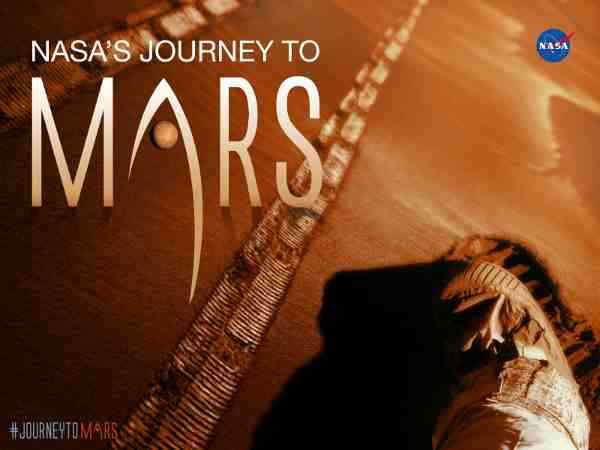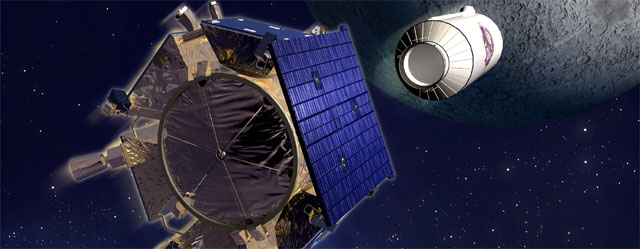NASA Signs Deals to Advance Journey to Mars

NASA Administrator Charles Bolden signed agreements with two European partners to advance Mars exploration and the journey to the Red Planet during meetings Tuesday at the Paris Air Show.
Bolden and Jean-Yves Le Gall, president of the French space agency, Centre National d’Etudes Spatiales (CNES), signed an agreement for France to provide the mast for the SuperCam component of NASA’s Mars 2020 rover.
In terms of design, SuperCam is similar to the ChemCam on the Curiosity rover, which is currently traversing the surface of Mars. ChemCam analyzes rocks and soil to determine their compositions and identify samples for analysis by other instruments onboard Curiosity.
[ New Software Allows Scientists to Work on Mars ]
SuperCam, however, will have significantly enhanced capabilities, equipped with four scientific instruments that will allow it to look for biosignatures – indicators of the past presence of life — and identify samples for collection and possible return to Earth.
“I’m delighted that our long time partners CNES will join us on the next step in our journey to Mars,” Bolden said, “We’re paving the way for humans to visit the Red Planet and working to answer one of the key questions for all humanity: has there ever been life elsewhere?”
[ NASA Plans to Build Houses on Mars ]
Bolden also signed an agreement that extends cooperation with Spain on the Mars Science Laboratory Curiosity rover, the NASA InSight mission that will launch next year to study the core of Mars, and the Mars 2020 rover. Bolden and Francisco Marín Pérez, director general of the Center for the Development of Industrial Technology of Spain (CDTI), and Ignacio Azqueta Ortiz, director general of the National Institute for Aerospace Technology of Spain (INTA) finalized the agreement.
The NASA-CDTI-INTA agreement continues operation and coordination of the Remote Environmental Monitoring Station (REMS) instrument suite and the High Gain Antenna (HGA) subsystem currently on the Curiosity rover.
[ Actor Jon Cryer Voices New NASA Film ]
REMS provides important data on Mars’ weather, while the HGA provides an important communications link for transmitting data from the mission. Spain will provide the HGA subsytem for the Mars 2020 rover, as well. For the InSight lander, Spain will provide a suite of sensors called Temperature and Wind on InSight (TWINS).
Through other agreements in development, Spain also will equip the Mars 2020 rover with a Mars Environmental Dynamics Analyzer (MEDA) instrument suite and calibration targets for the SuperCam.
“NASA is proud to continue our strong collaboration with Spain that is already producing amazing results on Mars,” Bolden said. “We look forward to this next phase of our partnership and a wealth of data about Mars, the next destination for human exploration.”
Photo courtesy: NASA





